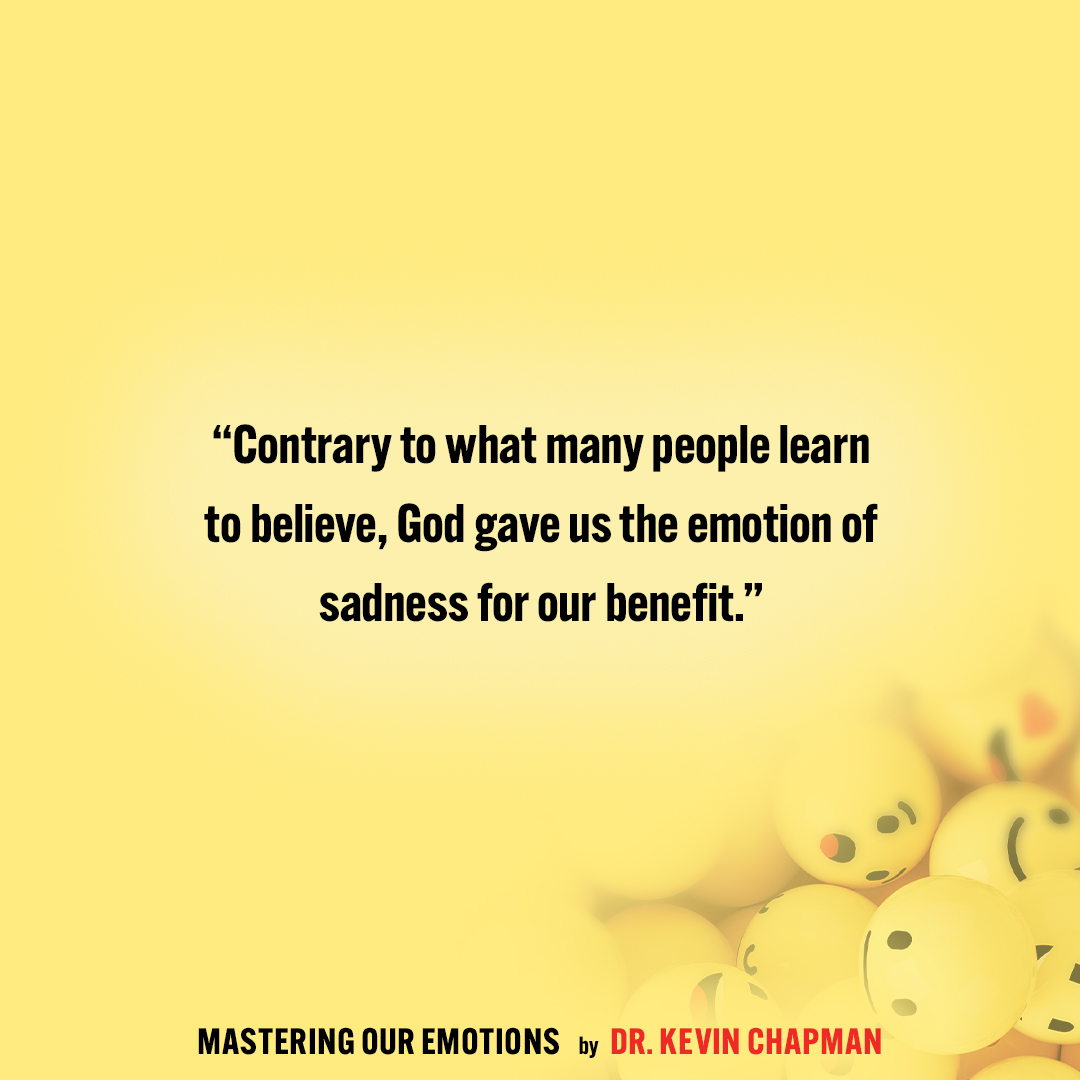Mastering Our Emotions: Biblical Principles for Emotional HealthНамуна


The Purpose of Emotions: Sadness
Better to go to the house of mourning
Than to go to the house of feasting,
For that is the end of all men;
And the living will take it to heart.
Sorrow is better than laughter,
For by a sad countenance the heart is made better. (Ecclesiastes 7:2)
Contrary to what many people learn to believe, God gave us the emotion of sadness for our benefit. Specifically, sadness is a natural emotional response to loss or to a setback in our lives that is important to us, such as losing a job, the ending of a season in our lives, or the death of a loved one. Unlike the other emotions that we have discussed, sadness creates a sense of heaviness and lack of energy that prompts us to take a step back or withdraw so we may reflect on the loss, gather our resources, and move forward with our lives following the loss or setback.
For example, if someone becomes sad after a divorce, that sadness is designed to help them take a step back, reflect on the relationship, and process what went wrong. If that individual were to jump into another marriage without reflecting on the previous one, they would be avoiding the emotion of sadness, which could cause them to repeat the same mistakes in the new relationship and spiral into more sadness.
The emotional disorder that serves as chronic sadness is known as depression. Depression is the chronic experience of sadness that creates significant distress and impairment in functioning as a result of a number of other symptoms that accompany sadness, including anhedonia (lack of interest in pleasurable activities), fatigue, feelings of worthlessness, excessive and inappropriate guilt, sleep disturbance, difficulty concentrating, and suicidal ideation. (It is often necessary to seek the guidance of a mental health professional if experiencing suicidal ideation.)
As noted earlier in this guide, the skills presented are designed not only to reduce the symptoms of emotional disorders but also to reprogram your tendency to respond to emotions in a negative fashion (i.e., reprogramming neuroticism).
- What has been your experience with sadness? Do you see it as mostly positive or negative or something else?
- How have you seen sadness cultivate something good in yourself or others?
- What do you think God's posture is toward you when you are sad?
About this Plan

This reading plan will help you understand the nature of emotions and the importance of recognizing how these emotions are trying to help you respond to situations in God-honoring ways. We will explore the purpose of core emotions with scriptural and scientific examples. By the end of this reading plan, you will be equipped to engage in strategies to more effectively regulate your emotions.
More
Нақшаҳои марбут ба мавзӯъ

10-Day Marriage Series

From PlayGrounds to Psychwards

Decide to Be Bold: A 10-Day Brave Coaches Journey

NT One Year Video - Q1

7 Ways to Grow Your Marriage: Wife Edition

A Spirit-Filled Life

Blessed Are the Spiraling: 7-Days to Finding True Significance When Life Sends You Spiraling

Standing Strong in the Anointing: Lessons From the Life of Samson

The Key of Gratitude: Accessing God's Presence
